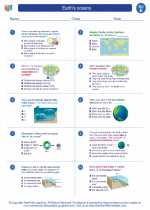Human Evolution
Human evolution is the process by which modern humans have evolved from earlier hominids. It is the study of how our species, Homo sapiens, originated and developed over time. The study of human evolution incorporates multiple scientific disciplines, including genetics, paleontology, anthropology, and archaeology.
Evidence of Human Evolution
There is a wealth of evidence supporting the theory of human evolution. This evidence includes fossil records, genetic analysis, comparative anatomy, and studies of ancient tools and artifacts.
Fossil Records
Fossil records provide a timeline of human evolution, showing the development and changes in physical characteristics over time. Fossils of early hominids, such as Australopithecus and Homo habilis, help scientists understand how our ancestors looked and lived.
Genetic Analysis
Genetic analysis has played a crucial role in understanding human evolution. By comparing the DNA of modern humans with that of other primates, scientists have been able to trace our evolutionary history and identify genetic mutations that occurred over time.
Comparative Anatomy
Comparative anatomy involves studying the similarities and differences in the physical structures of humans and other primates. This helps scientists identify evolutionary relationships and understand how certain features have changed over time.
Tools and Artifacts
Studying ancient tools and artifacts provides insight into the behaviors and lifestyles of early humans. For example, the development of more sophisticated tools over time reflects the cognitive and technological advancements of our ancestors.
Key Milestones in Human Evolution
Throughout the course of human evolution, several key milestones have marked significant changes in our species' development. These milestones include the emergence of bipedalism, the use of tools, the development of language, and the expansion of brain size.
Impact of Human Evolution
The study of human evolution not only sheds light on our past but also has implications for understanding human health, behavior, and diversity. It helps us comprehend the factors that have contributed to our unique characteristics and the challenges we face as a species.
Conclusion
Human evolution is a complex and dynamic process that continues to be a subject of ongoing research and discovery. By examining the evidence and milestones of our evolutionary history, scientists can piece together the fascinating story of how modern humans came to be.
.◂Science Worksheets and Study Guides Fifth Grade. Earth's oceans

 Worksheet/Answer key
Worksheet/Answer key
 Worksheet/Answer key
Worksheet/Answer key
 Worksheet/Answer key
Worksheet/Answer key
 Vocabulary/Answer key
Vocabulary/Answer key
 Vocabulary/Answer key
Vocabulary/Answer key
